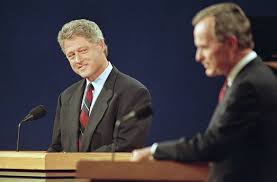Five tips for strong quotes that get you media coverage
Good spokespeople stay on message, avoid controversial subjects, and focus on their organization’s story. Great spokespeople do the same, but they also encapsulate the essence of their stories in headlines or short quotes that are emotionally impactful, relevant and memorable. Such quotes are capable of dominating the story and seizing control of the narrative.
In September 2002, I worked for Burson-Marsteller on the Accenture account. I was doing executive positioning and thought leadership work for the client’s Supply Chain Management practice. I was looking for a way to position the client’s practice leaders as experts that could offer insightful commentary regarding the West Coast port lockout that was choking the nation’s supply chain. In speaking with one of the practice leaders he told me, “The shutdown of these ports could have a greater impact on the supply chain than 9/11.”
It was a bold statement to make only one year after 9/11, but it was true. And, the magic of the phrase was that everyone remembered how 9/11 affected them, especially the shutdown of a critical transportation mode — airlines. I used his headline as the thrust of my pitch to secure interviews for my client with CNBC Squawkbox, NPR Marketplace, Wall Street Journal, Financial Times, Los Angeles Times, Investor’s Business Daily, Bloomberg News and more. He started each interview with the statement. Almost all of the media outlets ended up using it, while none of Accenture’s competitors were quoted.
It’s important to remember that speaking in headlines isn’t just for a media spokesperson. Great leaders know that headlines can be the rallying cry for motivating their followers. Political campaigns offer excellent examples. In 1992, Bill Clinton said, “It’s the economy, stupid.” And in 2016, Donald Trump said, “Let’s make America great again.” These phrases wrapped into neat little packages the positions of the two candidates. They also tapped into the emotional undercurrent of the circumstances of the day. There was nothing long or complex about them, yet both were extremely powerful.
When thinking about ways to create and use headlines to summarize your story for reporters, team members, employees, etc., consider the following tips:
- Prepare ahead of time. Take time to think about headlines you might use and how you’ll deliver them before you do an interview or make a presentation. Do more than memorize key messages – distill one or two headlines from the messaging that really hit home. Test the headlines with your communications team and refine until it feels right.
- Keep it simple. Complicated doesn’t work, no matter how clever. Use simple and powerful language and keep it short – one or two lines at the most. If the average person doesn’t understand your vocabulary or struggles to follow your run-on sentence, then you’ve failed.
- Know your audience. What’s on their minds right now? What’s catching their attention in popular culture and in other news headlines? What are the latest challenges or celebrations? How can you incorporate that into your headline in a way that resonates with the audience?
- Anticipate what others will say. Which competitors or adversaries will the media interview, in addition to you? What quotes might they offer? What headlines can you offer that might carry your message and neutralize theirs at the same time?
- Repeat, repeat, repeat. It’s not enough to say your headline once during the interview or presentation. Find ways to repeat it again and again. Start with it. Repeat it several times throughout. Make sure it’s the last thing they hear you say at the end. If the listener only remembers one thing you say, it better be your headline.
# # #


Great post and very much on the mark! With so many news stories and media releases flooding journalists, it becomes much more difficult to stand out. Sometime the idea for a great headline is buried in your release or story and you can’t expect that the journalists will be able to pull it out. The more work you do for them and the more compelling the story, the better your chances for coverage.
We love this post and will share it out.
LikeLiked by 1 person
Thanks, Wagner. Great observation on your part!
LikeLike